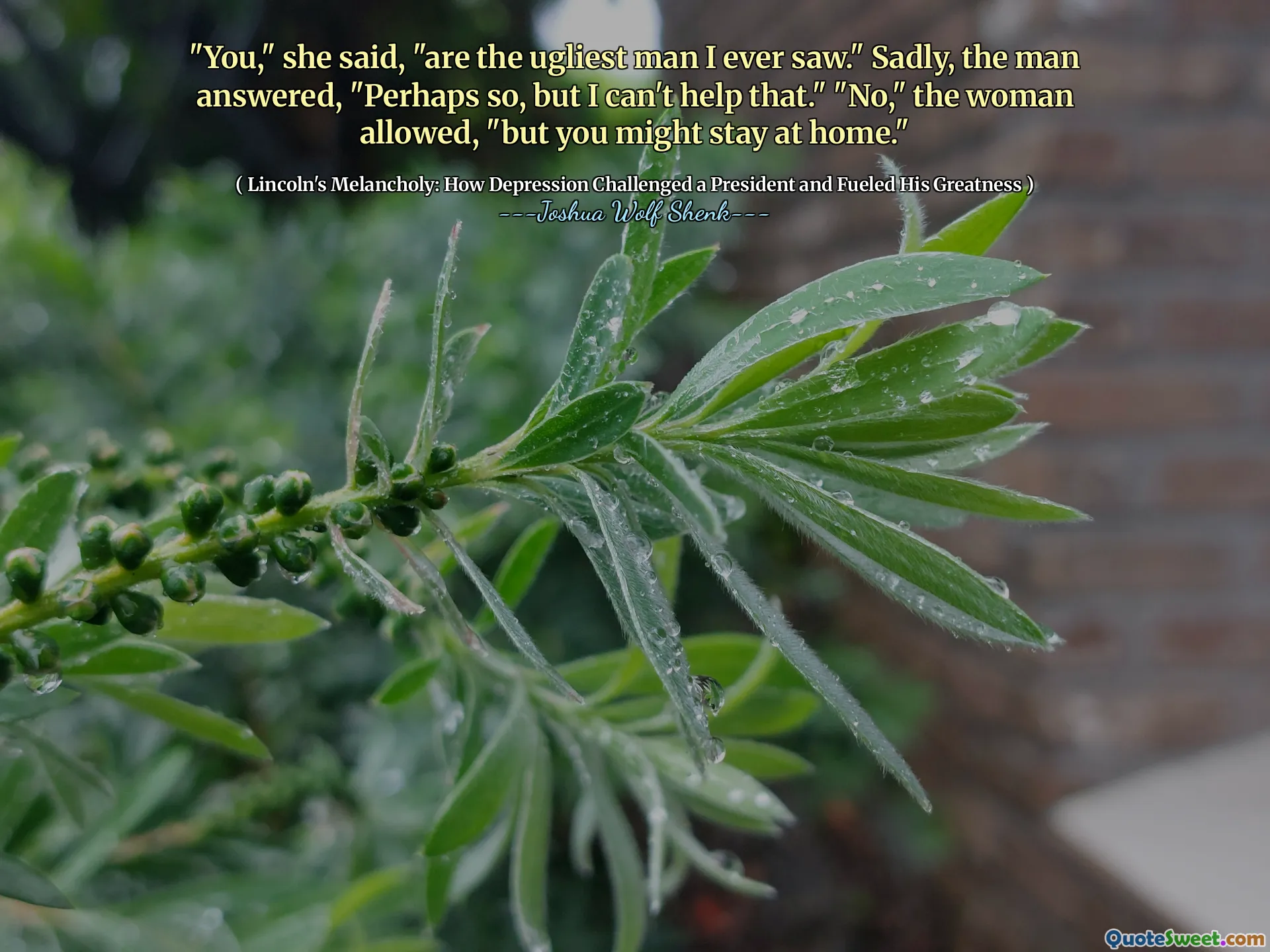
"You," she said, "are the ugliest man I ever saw." Sadly, the man answered, "Perhaps so, but I can't help that." "No," the woman allowed, "but you might stay at home."
This exchange captures a raw and poignant look at human interaction, with a strong undercurrent of social perception and personal dignity. The woman's blunt statement about the man's appearance is stark and unfiltered, illustrating how societal judgments can be brutally direct and often hurtful. The man's calm and sad response highlights a fundamental truth: certain aspects of our identity or nature are beyond our control. His resignation invites empathy, reminding us of the vulnerability inherent in facing criticism that touches on something immutable.
Moreover, the woman’s closing suggestion—to "stay at home"—reveals an instinct to manage discomfort by avoiding the source of it rather than confronting or understanding it. This dynamic can be seen as a metaphor for broader social exclusion and the human tendency to ostracize those who are different or perceived as undesirable.
Reflecting on this interaction within the context of Joshua Wolf Shenk’s "Lincoln's Melancholy," which explores how depression shaped Abraham Lincoln’s resilience and leadership, one can draw parallels with the challenges of personal adversity and societal judgment. Just as Lincoln battled internal struggles often hidden from public view, the man here silently endures a harsh external judgment. Both narratives emphasize endurance and the complexity of human worth beyond superficial appearance.
Ultimately, the quote forces us to consider empathy in the face of judgment and the importance of dignity when confronted with social rejection. It challenges readers to look beyond surface-level traits and recognize the humanity in others, even when circumstances provoke discomfort or prejudice.






